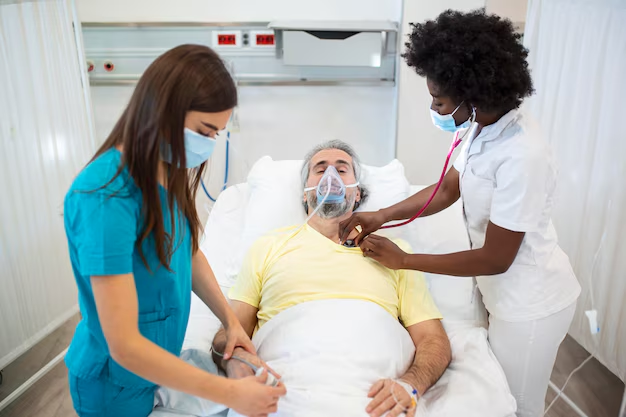Understanding Pneumonia: Are You Still Contagious with Antibiotics?
Every winter, as the weather chills and people gather indoors, respiratory illnesses spike. Among these, pneumonia stands out for its complexity and potential severity. As someone who's possibly grappling with the discomfort of a respiratory infection, you might wonder: Is pneumonia still contagious once on antibiotics? This question is not only practical but helps maintain community health safety. Let’s dive into the nuances of pneumonia, focusing on its contagious potential, especially following antibiotic treatment, and explore related aspects essential for comprehensive understanding.
What Exactly is Pneumonia?
Pneumonia is an infection that inflames the air sacs in one or both lungs. These air sacs may fill with fluid or pus, leading to a cough with phlegm or pus, fever, chills, and difficulty breathing, among other symptoms. Though often considered a single disease, pneumonia can be caused by a myriad of pathogens, including bacteria, viruses, and fungi.
Different Types of Pneumonia
- Bacterial Pneumonia: Often caused by streptococcus pneumoniae; this type is generally more severe.
- Viral Pneumonia: Frequently results from the influenza virus but can also be caused by others like the respiratory syncytial virus (RSV).
- Mycoplasma Pneumonia: Known as walking pneumonia, this is typically milder.
- Fungal Pneumonia: More common in people with weakened immune systems, caused by fungi from soil or bird droppings.
Understanding the cause is crucial because the contagious nature and treatment depend on it.
How Contagious is Pneumonia?
Not all pneumonias are created equal, especially regarding contagiousness. Let's explore which types pose a risk to others:
- Bacterial and Viral Pneumonia: These are contagious. They spread via droplets in the air when a person coughs or sneezes.
- Fungal Pneumonia: Generally, this form isn't contagious from person to person.
- Mycoplasma Pneumonia: Highly contagious, especially in crowded settings like schools.
Factors Influencing Contagiousness
Several factors determine how contagious a person with pneumonia might be:
- Type of Pathogen: As discussed, viral and bacterial are more likely to spread.
- Duration of Illness: Typically, individuals are contagious in the early stages when symptoms are most acute.
- Treatment Initiation: Timely treatment can reduce the period of contagiousness, especially with bacterial pneumonia.
Does Treatment with Antibiotics Make Pneumonia Non-Contagious?
Antibiotics are effective only against bacterial infections. Thus, if pneumonia is bacterial, antibiotics can reduce the contagious period. Typically, a person may become less contagious after a day or two of appropriate antibiotic treatment. However, this depends on:
- Antibiotic Effectiveness: Does the prescribed antibiotic effectively target the specific bacteria?
- Adherence to Medication Regimen: It's crucial to follow the complete course as prescribed to ensure effectiveness.
- Timely Start of Treatment: The sooner antibiotics are started, the quicker contagiousness might be reduced.
What About Viral Pneumonia?
Antibiotics do nothing against viruses. Thus, if the pneumonia is viral, antibiotics won't reduce contagiousness. Antiviral medications may be an option in some cases, but prevention methods like rest, hydration, and quarantine are vital to avoid spreading the virus.
Recognizing Symptoms Early
Spotting early signs of pneumonia can aid in seeking timely treatment, potentially curbing contagiousness sooner. Here are common symptoms:
- Persistent cough, possibly producing mucus
- Fever and chills
- Shortness of breath
- Chest pain when breathing or coughing
- Fatigue and muscle pain
While these are common, symptoms can vary based on age and existing health conditions.
Practical Steps to Prevent Spread
Whether you're on antibiotics or not, preventing the spread is essential. Here are steps to protect yourself and others:
- Practice Good Hygiene: Regular handwashing can eliminate pathogens.
- Mask Up in Crowded Places: If you cough or sneeze, wear a mask to prevent droplet spread.
- Disinfect Surfaces: Keep frequently touched surfaces clean.
- Stay Quarantined: Limit interactions if symptomatic or diagnosed with pneumonia.
- Seek Timely Medical Advice: Always consult healthcare professionals to understand when you might safely resume normal activities.
Building Your Immune Defense
While contagion control is vital, boosting your immune system can also aid in faster recovery and resistance:
- Balanced Diet: Include fruits, vegetables, lean proteins, and whole grains.
- Stay Hydrated: Fluids help thin mucus and ease coughing.
- Regular Exercise: Promotes respiratory health.
- Adequate Sleep: Rest helps your body combat infection.
These practices not only help fight pneumonia but support overall health.
Navigating Life Post-Diagnosis
Recovering from pneumonia doesn’t end once you're no longer contagious. Here's how to continue the journey toward full health:
- Follow Up on Doctor Visits: Ensure complete recovery and monitor complications.
- Gradual Return to Activities: Resume activities slowly, starting with light exercises.
- Awareness of Long-Term Effects: Be mindful of lingering coughs or fatigue, adapting life routines for comfort and wellness until full recovery.
Key Takeaways
Navigating pneumonia involves understanding its types, contagious nature, and treatment effects. While antibiotics swiftly counter bacterial infections, vigilance and preventive actions ensure safety and health continuity. Remember, consulting healthcare professionals is essential for personal and community well-being.
📄 Summary of Key Points
- Pneumonia Types: Bacteria, viruses, fungi, and mycoplasma.
- When Is Pneumonia Contagious?
- Bacterial/Viral: Contagious; antibiotics effective if bacterial.
- Fungal: Usually not contagious.
- Mycoplasma: Highly contagious.
- Antibiotics Effect: Reduce contagiousness for bacterial pneumonia, not for viral.
- Symptoms to Watch: Cough, fever, chest pain, breath difficulty.
- Prevention Tips:
- 🧼 Hand hygiene
- 😷 Wearing masks
- 🏠 Stay home if sick
- Post-Diagnosis: Follow up for a full recovery, gradually resume normal activities.
Empower yourself with knowledge about pneumonia, ensuring you're informed, responsible, and health-conscious in preventing and overcoming this common ailment. 🌟

Related Articles
- a Typical Pneumonia
- Can a Cold Turn Into Pneumonia
- Can a Sinus Infection Turn Into Pneumonia
- Can Amoxicillin Cure Pneumonia
- Can Amoxicillin Treat Pneumonia
- Can Baby Oil Cause Pneumonia
- Can Bronchitis Turn Into Pneumonia
- Can Covid Turn Into Pneumonia
- Can Doxycycline Treat Pneumonia
- Can Flu Turn Into Pneumonia
